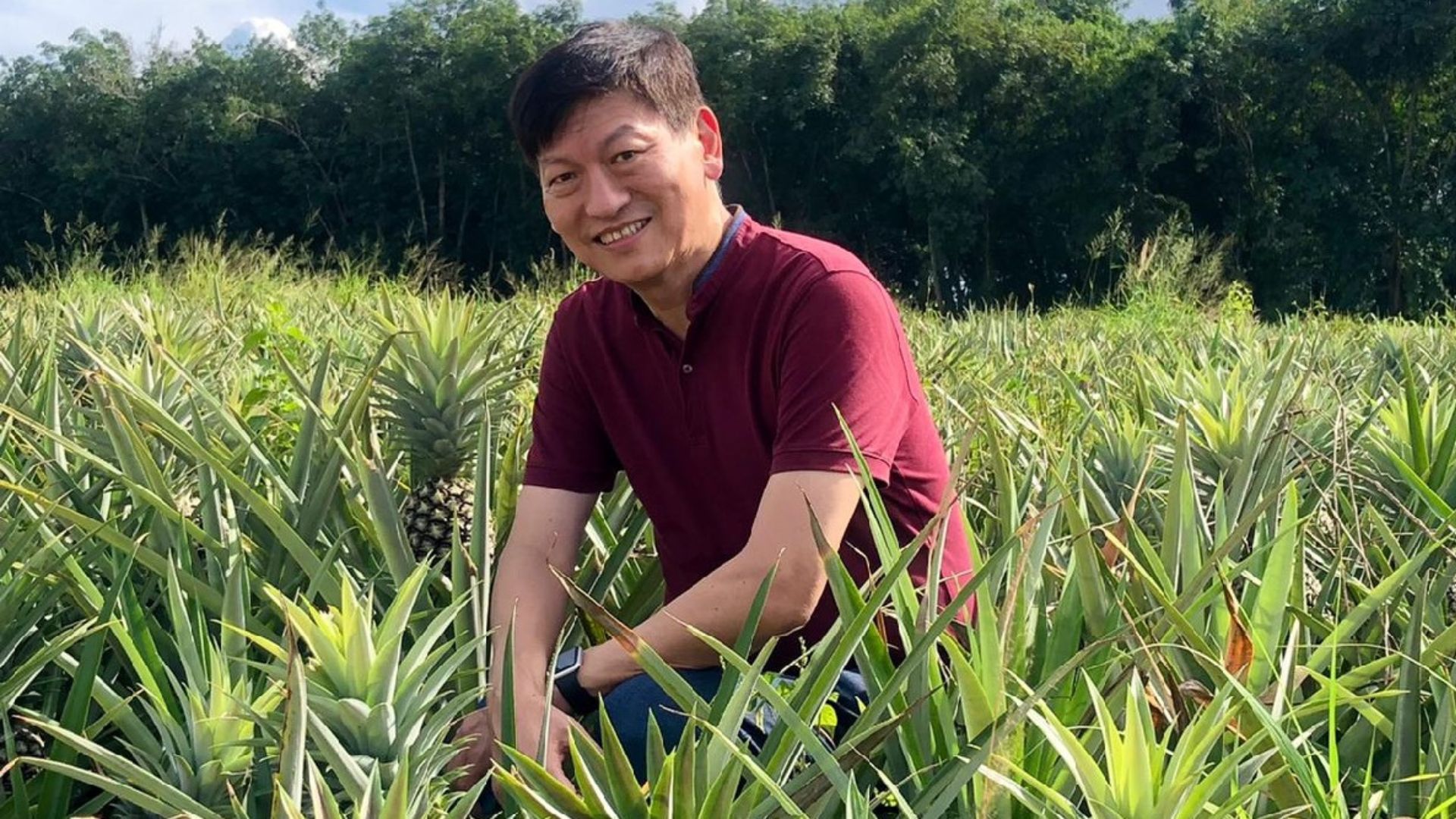From working with cars in the Philippines to overseeing pineapple farms in Indonesia, 58-year-old Harold Koh now finds himself coming full circle. He is back in his hometown Singapore, building his fabric manufacturing company that is centred around one key word – sustainability.
Today, Mr Koh is the CEO and founder of Nextevo, a fabric manufacturer that is rethinking the supply chains in fabric production to incorporate sustainable practices and reduce waste.
“That is what I’m passionate about. I learned a lot about sustainability in my previous role and I came to love it,” says Mr Koh.
Join TheHomeGround Asia as we speak to Mr Koh on pineapples, upcycling and sustainability.
TheHomeGround Asia (THG): Where did your interest in sustainability stem from? Are you a “greenie” yourself?
Harold Koh (HK): Honestly, I didn’t know much about green initiatives or sustainability prior to my stint at Great Giant Pineapple (GGP). They’re the second largest producer of pineapples in the world.
I was in the automotive industry for 20 years before that and my roles included sales and marketing, product development. I was aware about a push for sustainability in the economy but my exposure with sustainability only came at GGP, where I was their CEO for nine years.
At GGP, we were required to ensure that wastewater in pineapple and cassava production was treated. But instead of doing normal treatment, we converted wastewater into energy. There was a high sugar content in the wastewater and that we turned into biogas. We managed to generate about two megawatts of power which we used to supply the energy needs at the different factories and it makes our environment a better place.
We had many of these projects. It is a very different experience when you get your own hands dirty.
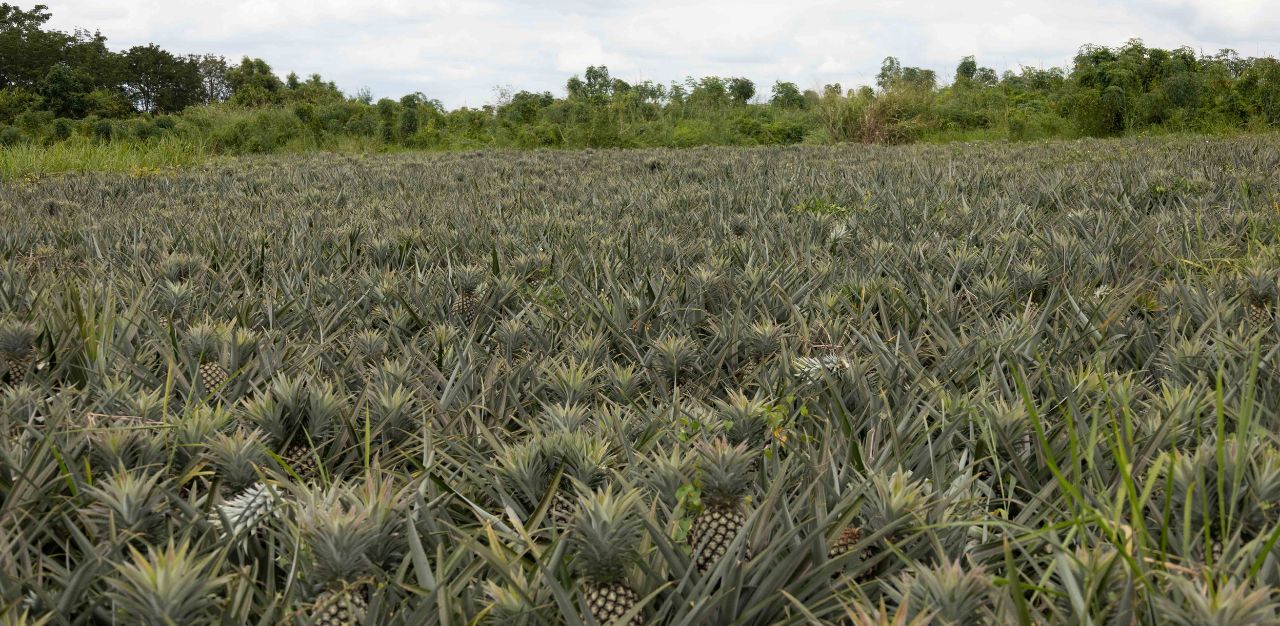
So when I first researched sustainability I looked at biomass. Biomass refers to using agricultural waste, like wood chips for burning and creating energy. But I didn’t really continue that business as a friend of mine from the coconut industry gave me an idea on trending agriculture ways to produce sustainable products. I immediately realised this is a great opportunity. The reason being Southeast Asia, with the exception of Singapore, is an agricultural region.
It is also a significant producer of palm oil, coconuts, pineapple, cassava, rice, sugar, rubber, and durian just to name a few. So the thought came to mind that there’s an abundance of agricultural waste to be collected. Why don’t I focus on that? Collecting the waste and turning it into a value-added product, instead of burning the waste for energy. So the next question is why do we start with pineapple? That’s where my background with pineapples came in. I’m very familiar with the product so I wanted to tap into my experience and knowledge. I knew where and how to access pineapple leaves. It was the logical step.
THG: What were some challenges you faced when you started Nextevo?
HK: Collecting pineapple leaves was never an issue. After nine months of starting in 2019, when things are rolling very quickly, the Covid pandemic hit.
It disrupted the entire supply chain. It was really bad, because one of the major disruptions is getting the machinery. So when the shutdown started, we couldn’t go to China, India, and Taiwan to look for equipment and that made it very tough. Everything had to be on video call. How were we going to buy equipment without inspecting it, and even if we bought the equipment, no one would be able to come to install it. Everything was delayed for 18 months.
That was a really tough period, but we decided that we couldn’t keep waiting. We needed to take action. That was when we decided to start operations by using a locally made small extraction machine. Of course the machine is not efficient, because it’s a single machine with a single labour. Despite that, we used it to carry out tests and then sent samples to our customers.
THG: What is the impact you hope to make with Nextevo?
HK: We want to be the largest sustainable fibre producer in Southeast Asia. At our core we are a sustainable company, and there are two things that are very important to our hearts – social and environmental impacts.
For the environmental impact, we must ensure that when we produce our products, it will work to improve the environment and not create more problems to it. That may sound easy, but there are many challenges along the way.
We extract the pineapple fibre from the leaf, wash and dry it. Of course, it’s easy to put the fibres in the dryer. The system is fast and uniform, because it’s mechanically driven. But that consumes a lot of energy, and energy produced by fossil fuel energy is not very sustainable.
So that was why we decided to sun-dry the fibres. We consume natural energy from the sun and this reduces our energy cost but that increased our cost of labour to take it out to the sun to dry. Should it rain, then we will have to quickly take it into the shade, and put it out again when the rain stops. This method may be a little bit more labour intensive but it’s important in our quest to be mindful and reduce our carbon footprint.
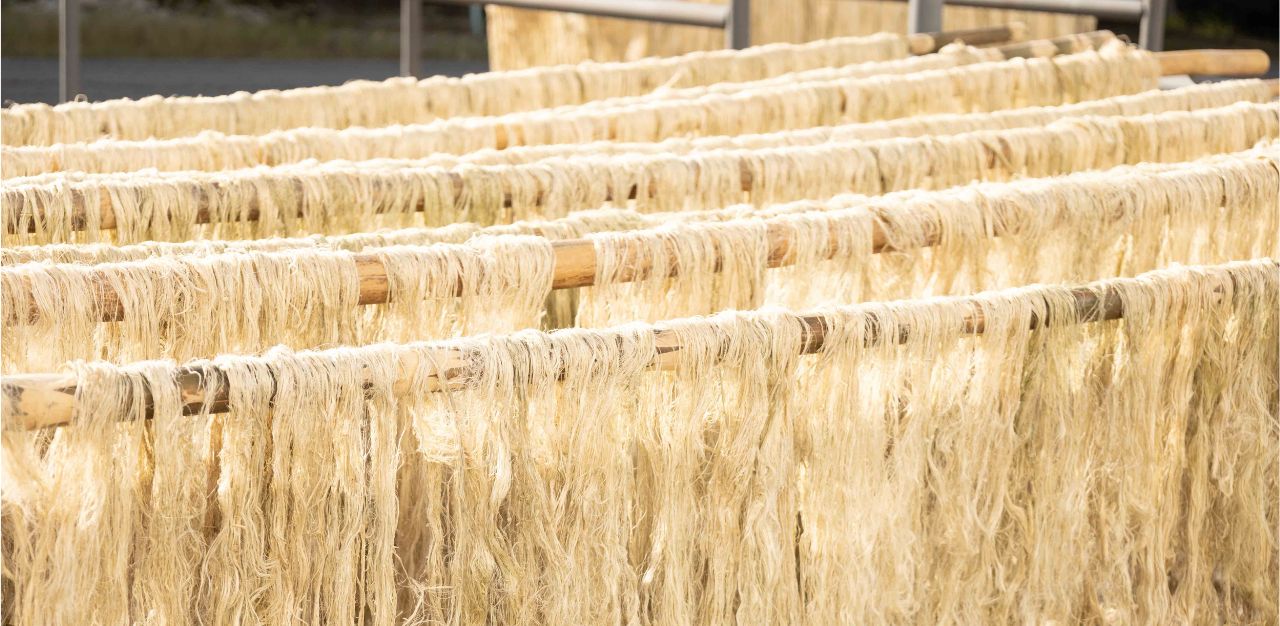
We’re also looking at renewable energies, solar energy in particular. It is to aid in our production efficiency as well as energy consumption. There are chemicals involving various processes like cleaning and dying. To reduce our use of chemicals even further we’re looking towards natural products called bio-enzymes to replace.
The most interesting one is to examine how to fully utilise the leaf. When we extract the fibre, we have a lot of by-product leftover. We ask ourselves: what do we do with this? Where do we start? Some farmers want it and some don’t. Some use it for animal feed and other farm use, but we always think in terms of adding value such as looking at product development to use these by-products to make bio plastics.
This mindset is important because by fully utilising all our waste, we don’t have to worry about overfilling the landfills. It also opens up the opportunity for plastic to be replaced with bioplastic. We have to make the environment a better place for everybody.
By the end of 2025 we want to positively impact about 5,000 farmers and reduce our carbon footprint by half. It’s not just talk. We need to track our progress.
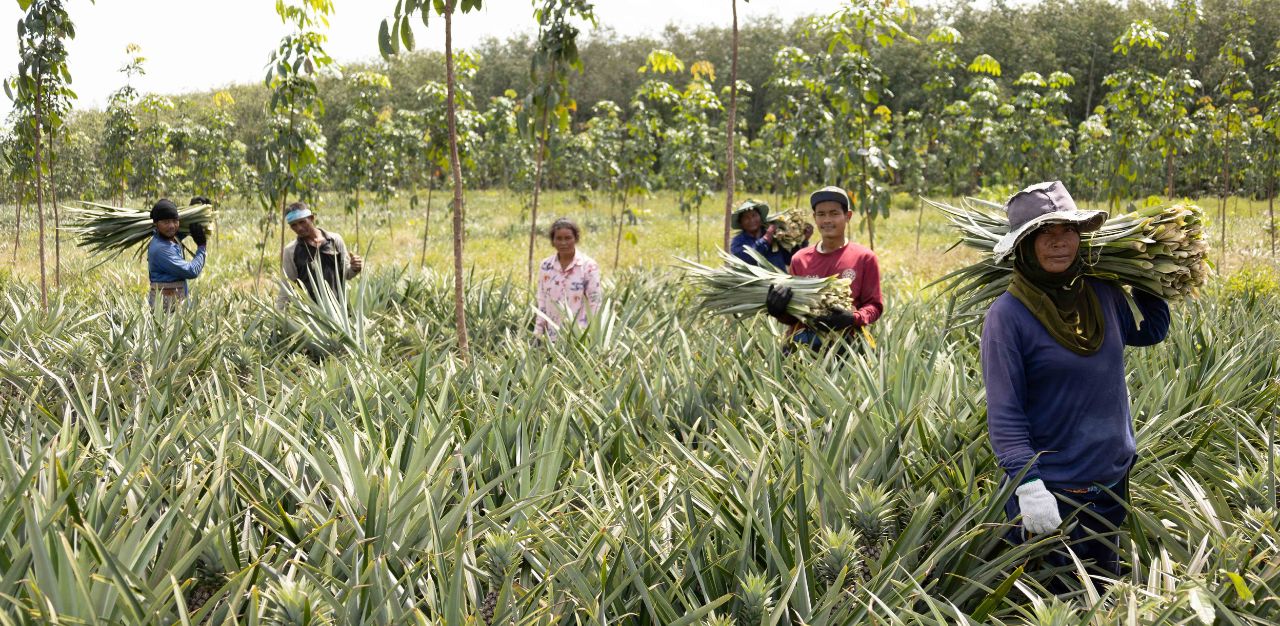
THG: What about your social goals? In certain regions like South America where cocaine farming exploits farmers, how do you hope to improve their livelihoods?
HK: For our social goals, we always look at how we can add value to the supply chain. How are we going to impact the farmers? After their harvest, the farmers do not know much about waste management. They’ll either use the unsold portions as seedlings or composting, but usually they’ll do the easier thing and burn the waste, which emits pollutants.
We spoke to the farmers and asked if they could sell the waste to us to earn extra income. Most farmers live below the poverty line and they tend to earn about 20 per cent of additional income from this, so we are able to impact them positively.
We work with farmer groups and provide employment opportunities in our supply chain. We train and teach in the decortication processes, supply them with machinery and agree to offtake the material.
By doing it across South East Asia like the Philippines, Thailand and Indonesia, we’re creating a scalable business for a very agriculturally rich South East Asian region. South East Asia is the largest producer of pineapples in the world. Indonesia is the top coconut producer in the world. We want to expand into other materials like banana stems and hemp, to tap into these resources.
We also want to build a supply chain collection system that’s fair to the farmers that can be scaled.
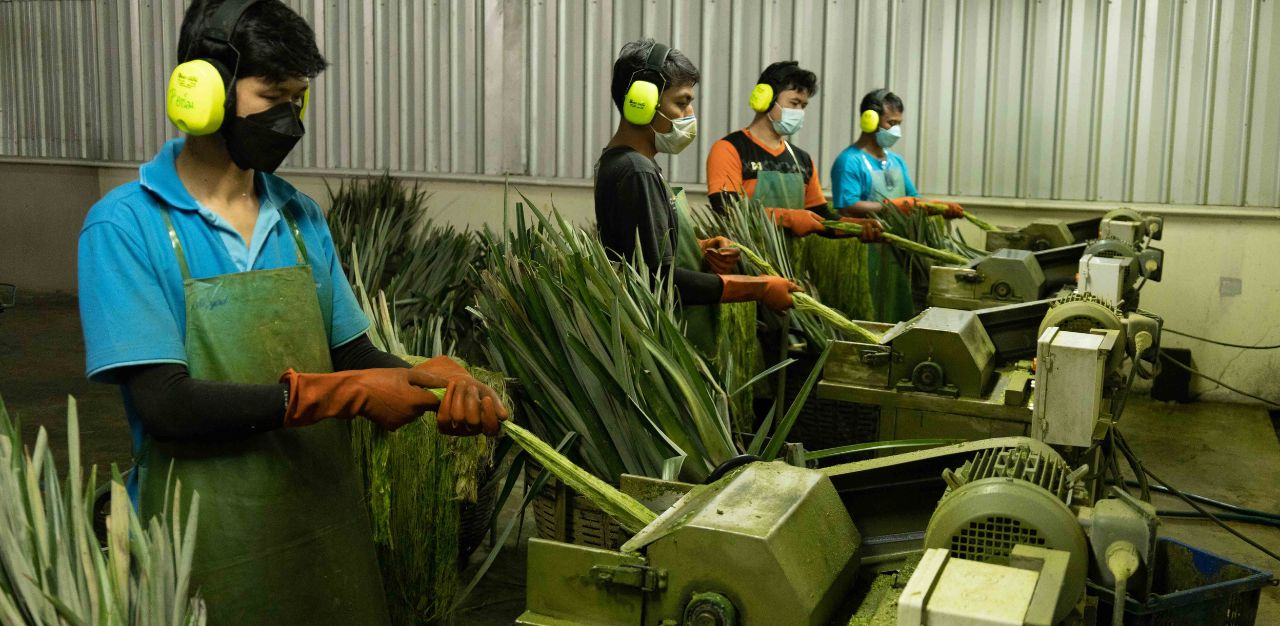
You know, extracting fibres from plants is not anything new. In places like the Philippines, they make traditional garments like their ‘Barong’ from pineapple and banana stems. The methods are there. So the question is, why hasn’t these practices been scaled up into a wider market?
What Nextevo is trying to do is to turn it into a scalable production. We look at ourselves not as a business in Indonesia or Thailand but as a Southeast Asia company today.
THG: How about the consumers? What are their attitudes towards sustainable products that are appearing in the marketplace?
HK: The world is moving towards sustainability. We don’t really need to educate our customers a lot. When we look at this, we do not look at it in a Singapore context but at the broader context. I think Europe is the region that people really move very fast on sustainably. North America and China as well.
Global warming is a big issue. It means that consumers will prefer to buy products that are more sustainable. They also want to use the product as long as possible by not throwing them away unnecessarily.
For example if I wear a shirt that is more than five years old, I myself feel malu (Malay for embarrass), or people think I have no money to buy anything new, right? This kind of self consciousness about how people view you mattered. But today, if you wear an old shirt people say, wow, this guy is good. He tried to extend the end of life of the product. Perceptions have changed.
We have one very good advantage which are pineapples. It’s very well known. Even eskimos know what pineapples are. So it is a much easier way to tell people about pineapple fibres. Research also shows that consumers are willing to pay 10 to 15 per cent premium on products that are more sustainable.
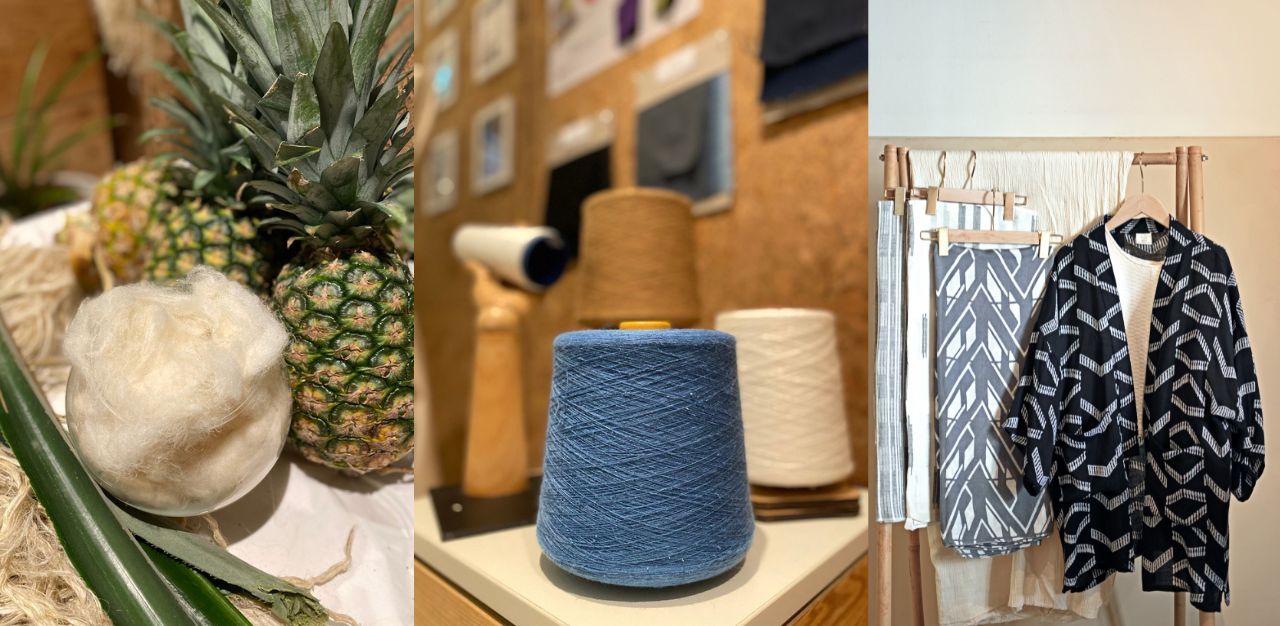
Many brands are excited about our materials, as there’s a big consumer drive (towards sustainability) and we have a lot of inquiries from brands and original equipment manufacturers (OEM). So there’s a lot of excitement in the space retail.
I think sustainability is big. From our product perspective, we are not the end user, the brands are. We want to provide sustainable materials to enable a change. The global textile business is worth about $1.4 trillion dollars annually.
THG: What keeps you motivated after so long in your career?
HK: It’s important to have fun in what you do. Sustainability is something that I really enjoy.
While we are a sustainable business, we are also a profit generating company. You know, isn’t it good to make money while helping to make the environment better, and also helping to give a positive impact to society? That kind of balance is, to me, actually quite exciting.
THG: Global warming can be quite a “doom and gloom” topic, yet you seem very positive and optimistic about the impact you can make. Do you think we are making good progress in the fight against climate change?
HK: Progress is definitely there. It’s been driven a lot by Western consumers and many governments in the world. And even in developing countries, people realise its importance. And the reason is very simple, right?
Last week, it was 38 degrees Celcius in London. In Southeast Asia, it’s been raining everyday for the past six months. If you go to the beaches along the East Coast you can see the waters coming in and the government is planning for that. We’re feeling the impacts of climate change and people are getting more aware of it.
Are we moving quickly enough? I think the answer is not really, but we are getting there. We ought to act on it a bit faster, and there are many organisations that are trying very, very hard to speed this up. Businesses are now greener too because the consumers demand it from them.
The consumers will ask, “I love your food but what do you do with your waste?” These are important and difficult questions we need to ask, which help corporations move towards sustainable goals.
For Singaporeans I think we’re progressing. I can see it myself. I used to live outside the country for many years and see the change now. The government has been very active which also helps incredibly.
THG: Do you have any advice for the average Singaporean to lead a more sustainable lifestyle?
HK: Actually a lot of things are quite simple. The trouble lies more on getting used to changes in lifestyle. They must have the will and passion to change.
So very simple things can be done, like replacing single-use plastics with reusable bags and containers while doing groceries and other chores. Can you imagine that? If we use a million of these things a day? How are you going to get rid of them?
Do not throw away all your used clothes. Instead, try to extend their lifespan by mending it, or dying it with fun colours. Be creative and make it different.
Buy products that are eco-friendly in terms of production and packaging and LED lights are great because it lasts longer.
I think these are just some daily changes people can make that aren’t too drastic. If we can carry out these few examples, we can definitely lead a more sustainable lifestyle.
Join the conversations on TheHomeGround Asia’s Facebook and Instagram, and get the latest updates via Telegram.

